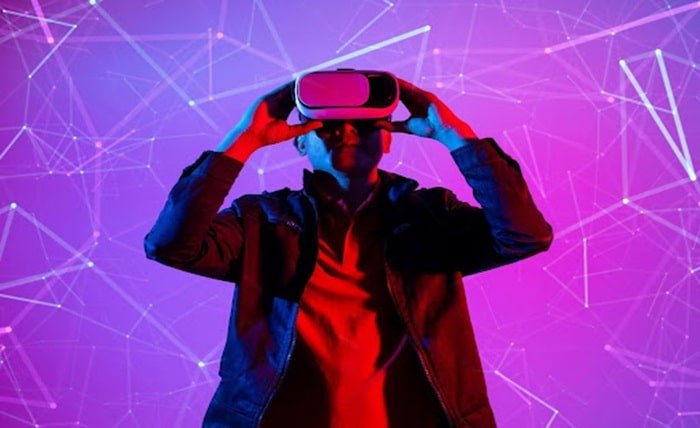The Future of Virtual Reality in Online Gaming

The computer gaming industry sustained its momentum of technical progress by moving from pixelated displays to life-like stunning visuals from its inception until modern times. Virtual reality has become recognised as the future of online gaming. The system promises complete immersion through its technology to transform both video game player interactions while changing their complete digital world experience.
A New Dimension of Immersion
Modern gaming techniques, through their colourful displays, continue to unite players to their digital games through monitor-controller interfaces. VR removes that barrier altogether.
The adoption of actual game environments for customised movements marks an absolute departure from typical controller methods since it enables players to encounter the authentic feel that basic casino gameplay fails to provide.
A cinematic sequence unfolding in a lit-up cyberpunk city depicts an aesthetic portrayal of traversing through rain that creates a visual spectacle as it descends upon pavements. The distinction between gameplay and true experience becomes evident through VR technology, which delivers superior benefits to classic gaming systems. These digital realms achieve authentic experiences through proactively sensed haptics within their dynamic sonic settings combined with body position detection methods that outperform previous gaming capabilities.
The Social Impact of VR in Online Gaming
Within the realm of online gaming,g community has existed since its inception, while voice chat and typed messaging act as conduits to unite people across all corners of the world. Through its implementation of body language and eye contact together with a gesture-based interaction system, Virtual Reality creates highly natural online communication that enhances user engagement.
Think of virtual casinos. These businesses are fully integrated with the VR industry because they want to create realistic casino experiences which enable players to socialise as they would in traditional casinos.
Virtual casino players can switch from computer-based wheel spinning with a mouse to physical wheel spinning at the table, which feels exactly like traditional land-based gambling. The real-time elements in virtual casinos draw two advantages through their life-likeness: they boost entertainment value and create opportunities for genuine social bonds.
The gambling features of VR gaming hubs combine with shared virtual spaces that enable players to engage in discussions as well as form strategies and casual conversations. The innovation surpasses traditional multiplayer games because players can introduce personal elements while interacting.
Challenges and Technological Hurdles
The main difficulty with Virtual Reality gaming consists of overcomeable obstacles that still block widespread access. VR headsets experience two main impediments: they remain expensive and have poor quality. Most players avoid purchasing new devices because they see promising future potential but are still experimental. The overall public experience with Virtual Reality also includes standard challenges because extended virtual realities often cause nausea to users.
There exists another significant primary challenge with hardware capabilities. The current VR headsets deliver remarkable display performance through demanding high-end PC or gaming console systems for optimal visual output.
Modern wireless and independent headsets show continuous improvement, yet they still fall short of high-end gaming computer systems in terms of performance capabilities. The primary uptake of VR gaming is until the match moves gradually rather than rapidly explodes.
The Future: Where Is VR Gaming Headed?
Nascent technologies tend to expand rapidly, and VR gaming will experience the same pattern of growth. The resolution of current problems depends largely on better hardware systems and solutions. The manufacturing industry is releasing lighter and more affordable VR headsets that deliver extended battery life together with improved resolution to attract casual gamers.
A new era in gaming technology will arrive through artificial intelligence. A VR world would feel engaging if Non-Player Characters reacted to your movements in real-time. Procedural generation under AI control might produce boundless virtual worlds that transform constantly according to each individual gamer’s gameplay requirements.
VR access to the mass market becomes more likely with cloud gaming technologies. Streaming VR games through cloud streams instead of expensive local hardware systems would expand the available market to players who want high-quality experiences.
In Closing
Future VR online gaming teems with possibilities. The direction of this technology remains straightforward because developers plan to enhance user immersion while improving social interactions between gamers together with improving the integration of gaming into everyday activities.
Future development of virtual reality technology will shape how it alters gaming systems while reshaping our digital environments yet to come. Players will find the deepest transformation in gaming through their entry into medieval combat zones, digital alien explorations, and new interactive encounters because no other gaming evolution promises similar changes.





